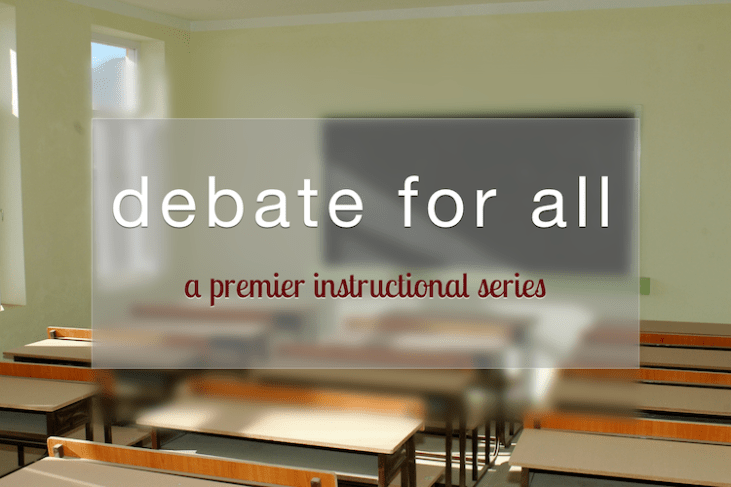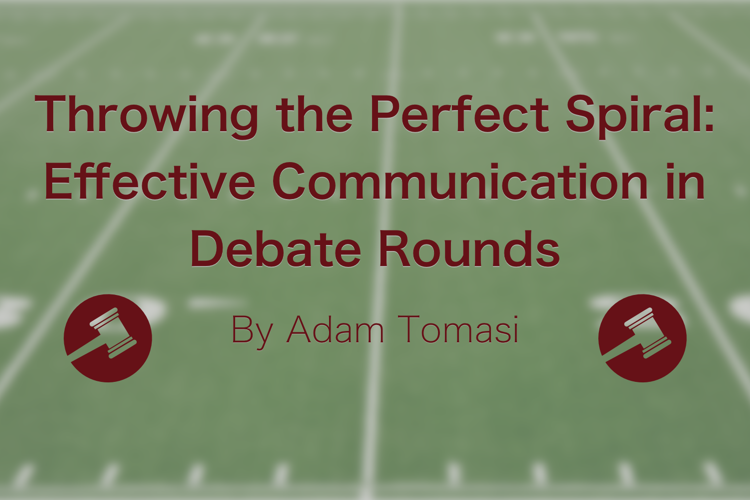March 20, 2017
What is a PIC? How is a PIC different than a regular Counterplan?
March 18, 2017
How does one improve at theory? Read this advice and comment below on your own techniques!
November 4, 2016
Debating without strong team, school, and/or administrative support is often a huge hindrance to success. Furthermore, working to satisfy the requirements of schools administrators, tournament directors, […]
October 7, 2015
Effective Communication in Debate Rounds by Adam Tomasi Introduction Debate is, at its core, a communicative activity. As such, debaters should understand what it takes to be […]
September 17, 2015
Learn how to maximize your research efficiency while finding just the argument you need with search operators.
August 26, 2015
In every writing class or public speaking class, students learn to provide introductory statements that lay out their thesis and the organization of their main points. This is not just for convention’s sake. It’s important to prepare the audience and let them know where you’re headed so they see that your body of evidence proves a larger argument. So why don’t more debaters give good overviews?
August 20, 2015
Not everyone has the personnel and the coaching to have the “ideal” practice, but hopefully this framework can be useful even on a small scale of just two LDers in a room with three hours on their hands.
March 29, 2015
Concept Sometimes you’ll hear a suspicious-sounding word in Scrabble where you’re not quite sure if it’s a real word. You can initiate a “challenge,” which is […]
March 13, 2015
Learn the basis of Elim strategy. When you should you flip? What side should you choose? When should you break new? Should you disclose which aff you'll read before the round?







